Rethinking ADHD | Qbtech
All Episodes
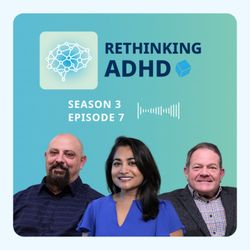
6. The new gold standard in ADHD medication management: Titration guided by objective data
46:29||Season 3, Ep. 6In this episode of Rethinking ADHD, Dr James Wiley MD and Dr David Aversa, MD, MPH joined Qbtech’s Head of Clinical Research, Ragini Sanyal, to unpack what modern medication management looks like and how tools like QbCheck are helping clinicians titrate with greater clarity and confidence. Speaker info: Dr James Wiley, MD, FocusMD Dr David Aversa, MD, MPH, CT Psych and Wellness/BeaconRagini Sanyal, Head of Clinical Research, QbtechWant to understand the correlation between titration and objective data? Want episodes like this in your inbox? Join the Rethinking ADHD community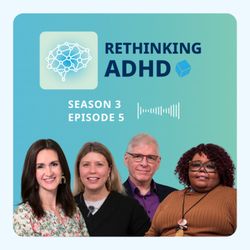
5. Lived experiences with ADHD: What your patients might not tell you
51:10||Season 3, Ep. 5ADHD goes beyond inattention and hyperactivity. It affects emotions, relationships, careers, and daily life in ways that many, even those living with ADHD, may not fully understand. This episode of our ADHD podcast series covers the realities of experiencing neurodivergence, including delayed diagnoses, difficulties with emotional dysregulation, coping strategies and the importance of a clinician’s role in a patient's ADHD care journey. The conversation between Duane Gordon, President of ADDA, Helen Turnbull, Evelyn Polk-Green, Ex President of ADDA, and Katie Hathaway, M.S, BCBA, is one of honesty, humor, and insight, offering a deeper understanding of ADHD that textbooks often miss.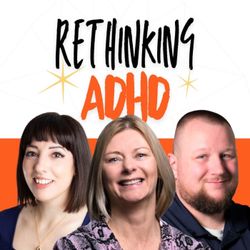
4. Why patient developmental history is crucial for an ADHD diagnosis
01:02:57||Season 3, Ep. 4ADHD is a neurodevelopmental disorder, meaning symptoms must have been present since childhood (APA, DSM-5). Understanding a patient’s early development is critical when assessing and treating ADHD. A thorough developmental history helps clinicians differentiate symptoms from comorbid conditions like autism, learning disorders, or anxiety.The latest webinar, led by our clinical experts Jess Brunett, Ryan Martin, and Penny Lazell, delves into the critical role data gathering and developmental history play in an ADHD diagnosis.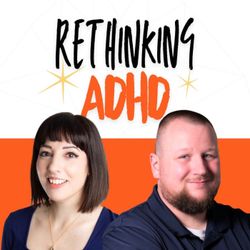
3. Differential diagnosis of ADHD and ASD
01:03:25||Season 3, Ep. 3In this webinar, our clinical advisors Jess Brunet (advanced nurse practitioner and non-medical prescriber in the UK) and Ryan Martin (former neuropsych tech and autism practitioner in the US) delve into the complexities of differentiating between ADHD and ASD. The discussion highlights overlapping symptoms, diagnostic challenges, and strategies for accurate differentiation, particularly in pediatric and adult populations.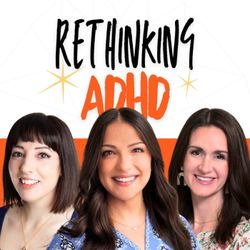
2. How to optimize your treatment approach through a strengths-based model of care
01:00:28||Season 3, Ep. 2A strengths-based approach to ADHD care focuses on the unique capabilities of each patient – allowing you to tailor patient interventions, improve adherence, and achieve better long-term outcomes.By adopting a strengths-based and inclusive approach to assessments while acknowledging the challenges ADHD individuals face, patients are better equipped to foster resilience, self-efficacy, and motivation.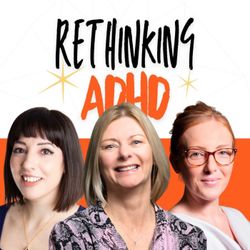
1. Physical health and ADHD: Women's health and hormones
47:02||Season 3, Ep. 1Exploring ADHD and women’s health and hormones: Key insightsIn recent years, there has been growing awareness of how ADHD uniquely affects women across their lifespan, particularly due to hormonal fluctuations and related health conditions – but much more research is needed.Our latest podcast was hosted by our expert clinical advisors Jess Brunet (UK), Penny Lazell (UK), and Corina Weir (US). Exploring these complexities, our team members with clinical experience and education, shed light on how ADHD manifests differently in women and the urgent need for tailored approaches to diagnosis and management.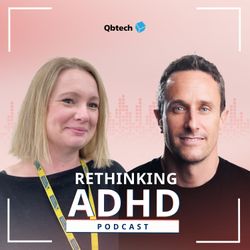
5. "I hope girls see the strengths ADHD can give them" - Jo Steer
48:43||Season 2, Ep. 5Girls and women with ADHD are more likely to be misunderstood and even missed completely because so many have inattentive symptoms that are difficult to spot. Jo Steer is a consultant clinical psychologist in the UK with over 19 years’ experience across children, young people, and their families as well as co-author of Helping Kids and Teens with ADHD in School.In this episode, Jo discusses the difficulties women and girls face in the diagnosis, treatment, and lived experiences of ADHD. While awareness of the condition is rising, there's still a long way to go in getting that recognition and understanding. Qbtech www.qbtech.comwww.instagram.com/qbtechwww.twitter.com/qbtechADHDwww.facebook.com/qbtechADHD Jo Steer www.drjosteer.comwww.twitter.com/josteer1 Simon Mundie www.simonmundie.com www.tinyurl.com/youtubesimonmundie www.instagram.com/simonmundie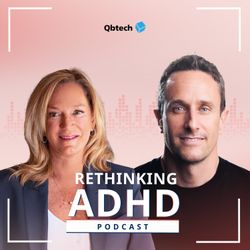
4. "Using substances to self-medicate pain and turmoil inside" - Heather Hayes
44:14||Season 2, Ep. 4Heather Hayes is an addiction specialist in the US. She shares her lived experiences of ADHD and substance addiction. A spectrum of addiction is discussed, from substances to internet use. There is a major misconception that stimulant medication can lead to drug addiction. Heather delves into the truth behind this and what medication can look like for those with a history of substance abuse. Qbtech www.qbtech.comwww.instagram.com/qbtechwww.twitter.com/qbtechADHDwww.facebook.com/qbtechADHD Heather Hayes www.heatherhayes.comwww.instagram.com/heatherrhayesinc Simon Mundie www.simonmundie.com www.tinyurl.com/youtubesimonmundie www.instagram.com/simonmundie
3. "You're playing a very close approximation of yourself" - Adrian Chiles
32:44||Season 2, Ep. 3“Pay attention to what you’re paying attention to,” says British writer and television and radio presenter Adrian Chiles. In this episode, he discusses his personal ADHD journey, including how he dealt with anxiety, rejection sensitivity, and dysphoria. Adrian also addresses the challenges within the NHS regarding ADHD care whilst highlighting the importance of early diagnosis and getting the right kind of support. Qbtechwww.qbtech.comwww.instagram.com/qbtechwww.twitter.com/qbtechADHDwww.facebook.com/qbtechADHD Simon Mundie www.simonmundie.com www.tinyurl.com/youtubesimonmundie www.instagram.com/simonmundie
loading...